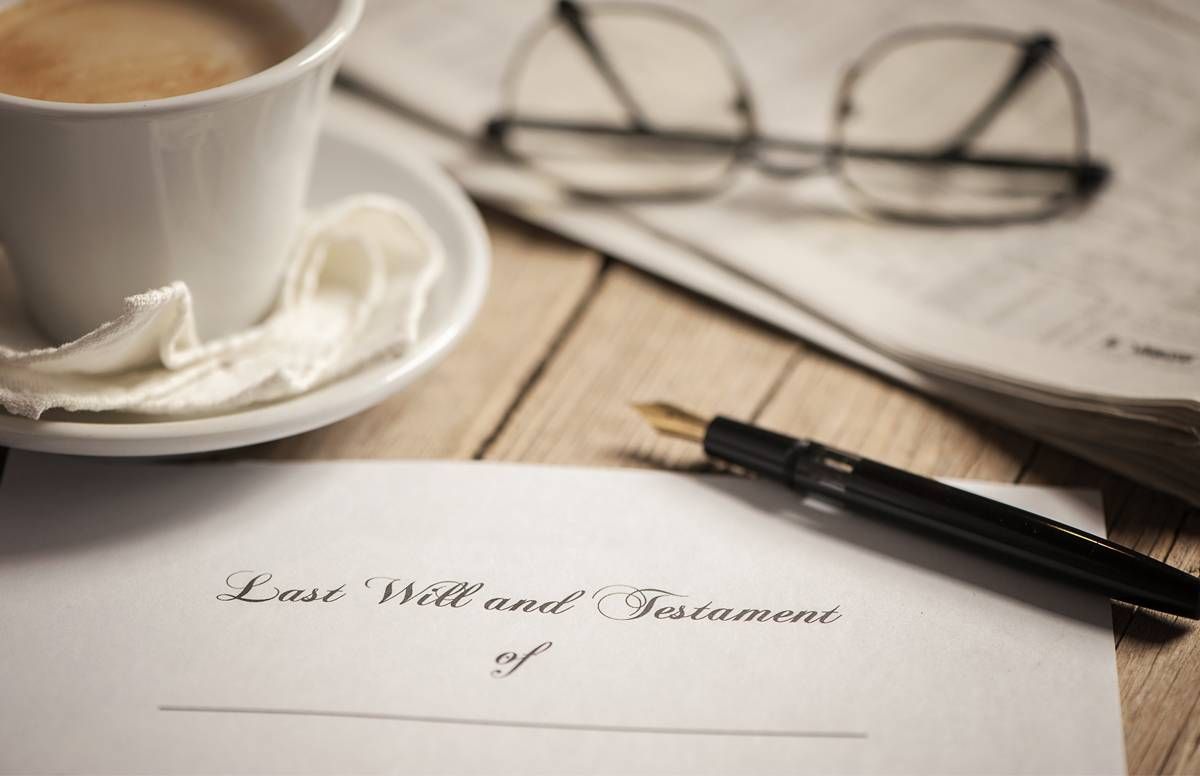The Dangers of Dying Without a Will
The pandemic proves you need a will, but the process has changed
Until now, you may have viewed writing a will as something you’d get around to doing someday. But because of the vicious coronavirus, it’s time to treat writing a will as something every bit as important as washing your hands and using hand sanitizer, considering the potential consequences of not doing those things.

The pandemic is telling us: You need a will now more than ever.
Writing a will lets you decide who will inherit your assets when you die and, if you have minor children (ones younger than 18 in most states), who will raise them if you die and their other parent is deceased.
If you die without a will, however, the state you’ve lived in will make these very important decisions for you.
If you die without a will, however, the state you’ve lived in will make these very important decisions for you. And by essentially creating a default will for you, what your state decides may in no way reflect your wishes. It could create conflict within your family and cause economic hardships for the loved ones you leave behind. Also, none of your assets will go to any charities you care about.
What’s more, leaving things up to your state upon your death will then involve the courts, which will generate legal expenses your estate must pay.
Our Commitment to Covering the Coronavirus
We are committed to reliable reporting on the risks of the coronavirus and steps you can take to benefit you, your loved ones and others in your community. Read Next Avenue's Coronavirus Coverage.
What Can Happen If You Die Without a Will
Here are a few examples of the problems dying without a will may create:
- If you are married and have children from a prior relationship, the bulk of your estate may wind up going to them rather than your spouse. Not only could this be financially devastating for your husband or wife, it could mean he or she will need to deal with stepchildren (or your former spouse if your kids are minors) just to receive some of your assets.
- If you are single and die without a will, your assets might end up going first to your parents or your siblings if your parents predeceased you. This could happen even if you didn’t get along with them.
- If you die and had an unmarried partner, your lack of a will may well leave him or her in an extremely difficult position, especially if your partner had been financially dependent on you. This is because, when it comes to estates, state laws don’t recognize unmarried partners, only biological family members. Consequently, your partner could get evicted from the home the two of you shared if you were the sole owner.
Ensuring Your Will Is Valid
When you do write your will, it’s essential that the document is legally valid in your state. There’s no assurance that one you prepare without a lawyer will meet that criteria. If the probate court won’t recognize your will, it will be as though you died without one.
It’s also important to understand that some states don’t allow handwritten wills, but in those that do, these types of wills are strictly scrutinized by probate courts, so they may be determined to be legally invalid.
An estate-planning attorney in your state can help ensure your will meets your state’s requirements, minimize discord within your family and prevent family members from challenging its validity in court.
The Coronavirus Caveat
But there’s a coronavirus caveat: Working with an attorney will be more complicated if you aren’t leaving your home or letting anyone in due to the pandemic.
But, as a workaround, many estate lawyers are now communicating with clients via videoconference services like Zoom, rather than having face-to-face meetings. They’re also arranging to have wills and other legal documents signed without clients having to come to their office. They do this either through video chats or by so-called “drive-through” signings, where clients come to their office parking lot and sign wills while a notary and witnesses look on from a safe distance.
Life is extremely fragile right now, and the consequences of dying without a will have never been more profound.

